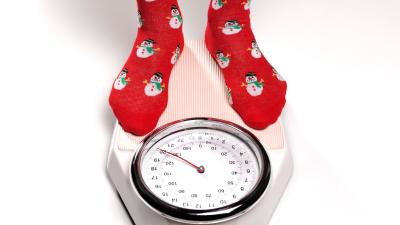Boycott Meat to Protect Essential Workers

Workers need a paycheck, but they shouldn’t have to die for it.
That was Dr. Neal Barnard’s message at a press conference earlier today, where he and a coalition of civil rights leaders and public health experts teamed up to call for a boycott of meat to protect workers’ safety and to promote public health.
As of June 23, nearly 28,000 meatpacking workers at hundreds of facilities throughout the country have been infected with COVID-19, while 99 have died from the virus.
The coalition is led by the League of United Latin American Citizens (LULAC), a civil rights organization protecting the rights of Hispanic Americans. At the press conference today, LULAC’s Joe Enriquez Henry stated that beginning in early March, LULAC has received calls from meat plant workers expressing concerns about unsafe working conditions and meat corporations failing to put safety measures in place, including social distancing and protective gear.
“These facilities have been incubators for the virus due to the closeness of the workers side by side, working on these lines and cutting meat at a very high speed,” added Henry. “Here in Iowa where I am, in Storm Lake—where there are two Tyson facilities—1 out of every 12 people in the community has become infected by the virus, and we know that that is due mostly to meatpacking plants in the area.”
Dr. Barnard added: “We at the Physicians Committee have been concerned about the health effects more broadly for people consuming meat. When people consume these products, we know that over the long run, they can be very dangerous. But right now, if you step into a meatpacking facility, you could be dead in two weeks. There is no reason for something like that to occur.”
The coalition made it clear that the dangerous working conditions in meatpacking facilities are unnecessarily risky, because meat is not an essential product. In fact, replacing meat with plant protein could actually significantly boost Americans’ health. A recent Harvard study found that those who ate the most plant protein were 27% less likely to die of any cause and 29% less likely to die from heart disease, compared with people who ate the least.
The coalition also stressed that the government should enforce regulations to protect workers. Dr. Barnard stated: “I grew up in Fargo, North Dakota, and my extended family is all in the meat industry, and they’re good and decent folks. Like the tobacco farmers before them, they got involved in an industry thinking they were making a product that was safe and healthful, but science caught up with them, and we realized that tobacco causes lung cancer. That put the industry in a tough position, and it put the workers in a tough position, too. But the government jumped in and supported a transition away from those products. A generation later, that’s exactly where we are with meat.”
To join the call for a meat boycott, visit BoycottMeat.com. Get started with free recipes, tips, and resources with the 21-Day Vegan Kickstart.
Watch the virtual press conference on Facebook.
I grew up in Fargo, North Dakota, and my extended family is all in the meat industry, and they’re good and decent folks. Like the tobacco farmers before them, they got involved in an industry thinking they were making a product that was safe and healthful, but science caught up with them, and we realized that tobacco causes lung cancer. That put the industry in a tough position, and it put the workers in a tough position, too. But the government jumped in and supported a transition away from those products. A generation later, that’s exactly where we are with meat. The people who got involved in this business were hoping for a better life. They were hoping to make some money. They were hoping to have a profitable business. But we’ve now learned that there are enormous health problems from basing our diet on these products, there are huge environmental problems, and I don’t need to tell anybody that the animals are not having a good time. Americans eat a million animals every hour. So, we are delighted to support this effort because we want to protect the workers—that’s what it’s all about. We want to protect their communities and protect human health—a dietary switch is going to help everybody. We do want to speak up very strongly for the animals and the environment. This is a win-win-win-win.








